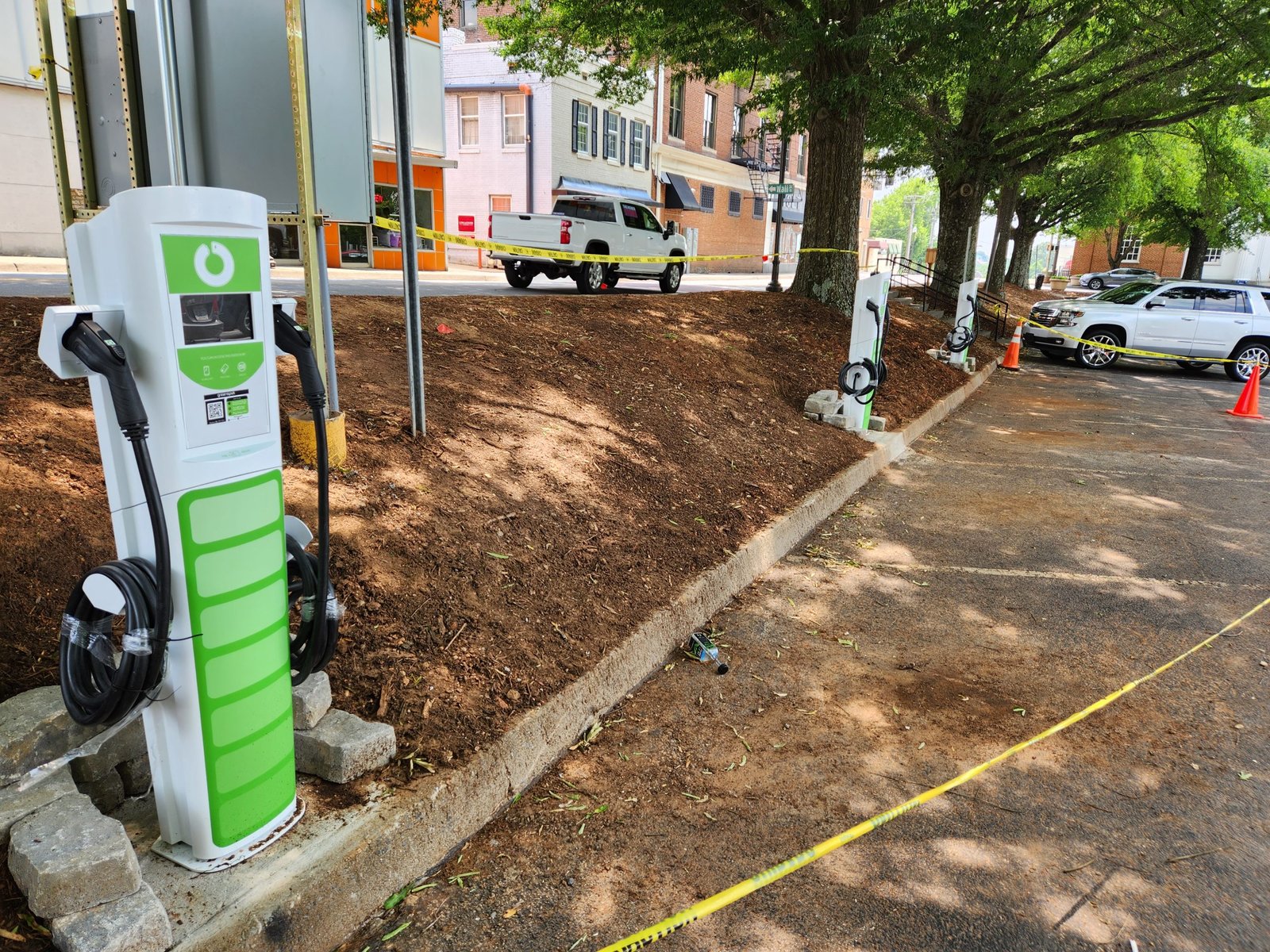For three years, a Virginia delegate has tried to get funding for electric vehicle charging stations in rural areas.
This General Assembly session, Del. Rip Sullivan, D-Fairfax County, got the House of Delegates to pass a bill and added a $2 million budget request that made the House’s list. But Thursday’s General Assembly budget report ultimately didn’t have any money for it.
The idea, according to HB 107, was to establish a fund that private businesses could tap into for grants to cover up to 70% of such nonutility costs as equipment foundations, driveways and surface markings to install EV charging stations in areas with low population density and higher-than-state-average unemployment.
Sullivan, arguing for his bill in a House subcommittee meeting, said that most of Virginia’s EV charging stations are within a mile of interstates 81, 64, 66 and 95.
“Virginia is a very big state and a lot of people and a lot of businesses are located a lot more than 1 mile from a major interstate,” Sullivan said in a recent interview. “So the idea was to find a way to fill those gaps and make sure that there was charging station infrastructure going in all around the state.”
He added: “It is clear … whether any individual Virginian wants it or not, electric vehicles are coming. … The market has made that clear. … I have felt that this has to be something that happens statewide, not just in certain areas of the state.”
Seventy-eight of the commonwealth’s 95 counties would be eligible under the population and unemployment metrics, including counties throughout Southwest and Southside Virginia, according to information that Sullivan supplied. The cities of Bristol, Buena Vista, Covington, Danville, Emporia, Galax, Martinsville, Norton, Danville, Emporia, Martinsville and Petersburg would have qualified, as well.

EV drivers who live there, and potential tourists to the regions, suffer from “range anxiety” when it comes to driving far off interstates, Sullivan said.
Sullivan got the bill through the House, where it passed with a bipartisan vote of 71-27 on Feb. 8. Greg Habeeb, a former Republican legislator from Salem who is now a lobbyist, spoke on behalf of the bill during a subcommittee meeting.
Habeeb, who said on Thursday that he was representing multiple clients that day, including Chicago-based Carbon Solutions Group, told a House subcommittee that the bill would provide “a nudge to get developers over the initial upfront costs until the demand meets the supply.”
He called it a “chicken and egg” situation.
“People don’t want to buy an EV if there’s no infrastructure. Nobody will put infrastructure there if people don’t have EVs,” he told the delegates. “And so what the industry has said … is that 70% nudge in currently non-EV areas of the state, largely, is what it would take to get that upfront investment, which would then lead to the vehicles coming online.”
With that investment would come tax revenues and utility payments, he added, and addressed Republican delegates “uncomfortable with either EVs or government programs.”
Such vehicles are bound to become an important part of the transportation mix, he said. “So the question is simply, should rural Virginia be left behind or not? Should rural constituents have the opportunity to acquire whatever vehicle they want, or should they not?”
In the final House tally, 10 Southwest and Southside Republicans voted in favor of the bill, with eight voting against. Among the nays was Del. Jason Ballard, R-Pearisburg.
“This legislation does not address the issues that voters elected us to fix,” Ballard wrote in a text message exchange. “It is not our job in the General Assembly to pick winners and losers, and that is exactly what this bill does. If private developers want to invest in EV charging stations and build them in Southwest Virginia, then they should do it on their own dime and not through subsidies from Virginia taxpayers.”
Sullivan filed a budget amendment for $25 million to fund his proposed Electric Vehicle Rural Infrastructure Program. The House ultimately put $2 million in its budget proposal. Meanwhile, the Senate passed it 28-12, adding some amendments, one of which the House rejected. The bill was placed in a conference committee, waiting for budget negotiators to compromise on the General Assembly’s proposed biennial budget.
They released it on Thursday, with nothing for HB 107. Sullivan said that he was not sure what happened, but he would not be giving up.
“I just think this is an important program,” Sullivan said after the budget was released. “And it’s been frustrating to me that I haven’t been successful in convincing, I guess, enough members of the General Assembly of that. But I have an old saying: This is why God invented next session. And I will keep at it.”
Related stories
[ad_2]
Source link




